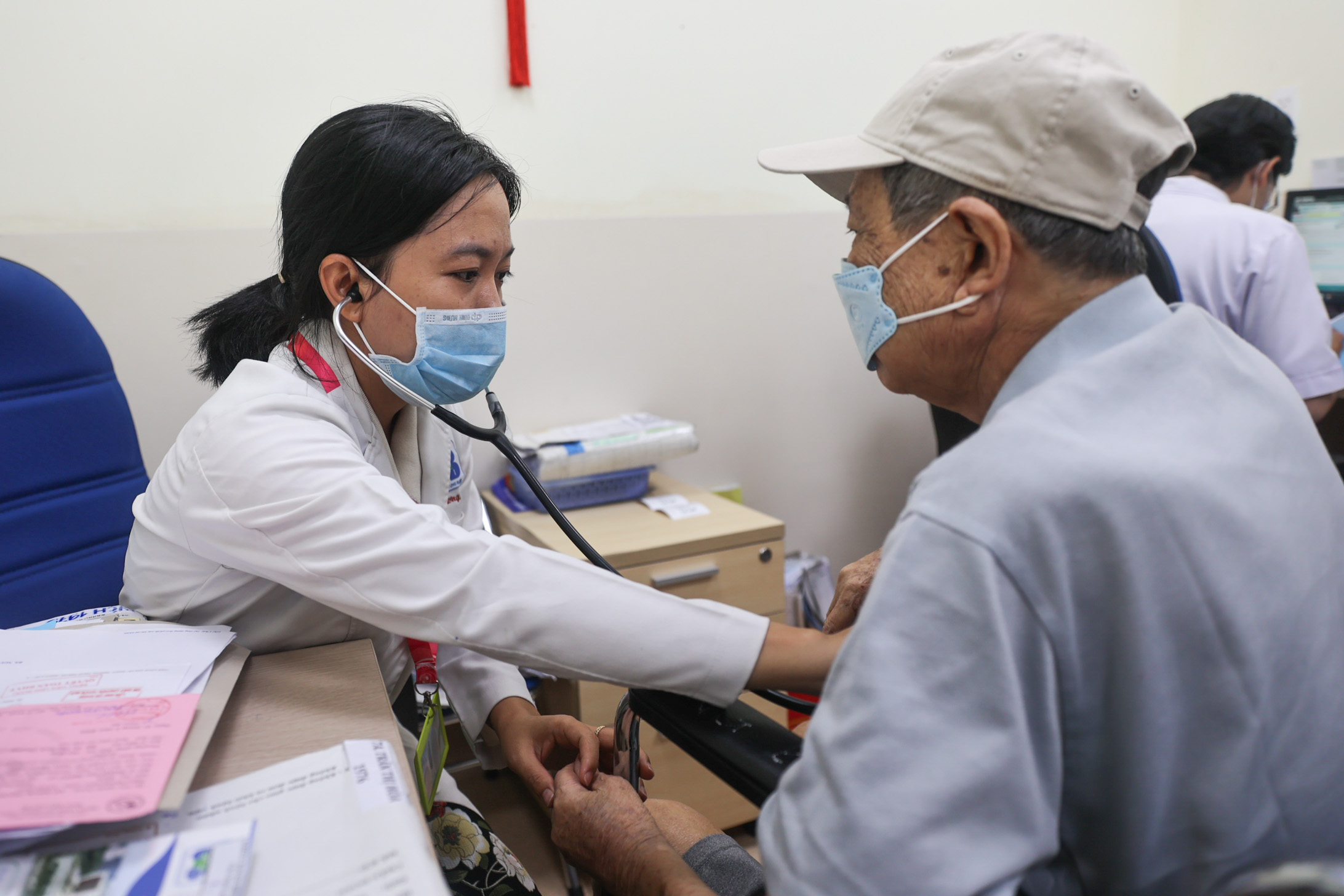This proposal was raised by Dong Nai voters regarding healthcare issues before the 9th session of the XV National Assembly.
Currently, most people aged 70 and over have multiple chronic illnesses. Local hospitals lack the facilities and qualified personnel for treatment, so patients often seek care at higher levels. However, the Health Insurance Law stipulates lower reimbursement rates for those bypassing referrals, increasing patient costs.
For example, if an outpatient visit at a provincial hospital costs 500,000 VND, and health insurance only covers 50% for bypassing referrals, patients would pay 250,000 VND out-of-pocket. If specialized tests are needed, this could reach millions of VND. Additional costs for non-covered medications, special medical supplies, or on-demand services add to the financial burden.
Experts note that older adults often have low or no income, relying on family or meager pensions. Paying hundreds of thousands to millions of VND per visit is substantial, especially with chronic conditions requiring frequent checkups. Financial pressure can cause worry, stress, and even feelings of being a burden.
Minister of Health Dao Hong Lan explained that tiered healthcare regulations ensure treatment matches the illness and expertise, regardless of age. The goal is to reduce the load on higher-level facilities, reserving referrals for severe cases.
The Minister stated that the voter proposal regarding people over 70 with chronic illnesses was considered in Circular 01/2025 on health insurance implementation. This circular allows direct access to higher levels of care for certain serious, chronic illnesses without referrals.
 |
A doctor examines an elderly patient at the TP HCM Oncology Hospital, facility 2. Photo: Quynh Tran |
A doctor examines an elderly patient at the TP HCM Oncology Hospital, facility 2. Photo: Quynh Tran
Regarding elderly care, voters from various provinces also suggested lowering the age for elderly benefits from 75 to 70, due to declining health at that age. However, according to the Minister, the Social Insurance Law, effective 1/7/2025, already provides social pensions for those aged 70 to 74 in poor or near-poor households.
This is significant progress, gradually addressing voter requests to expand support for people 70 and over, according to the Minister. However, lowering the social pension eligibility age from 75 to 70 for all seniors, not just those in poor households, "requires careful consideration."
"This needs to be considered within the broader context of social security and elderly care policies. It requires socio-economic impact assessments to ensure the feasibility and sustainability of the social welfare system," Ms. Lan said.
Vietnam faces rapid population aging, ranking among the top 10 countries globally. By 2025, Vietnam is estimated to have 16.1 million seniors, over 16% of the population. By 2036, Vietnam is projected to officially enter an aging population phase.
On average, each senior has three to four chronic illnesses, increasing the need for long-term care, home care, and social support. This not only reduces quality of life and income but also strains families and the healthcare system. Improving senior healthcare must encompass prevention, rehabilitation, mental health care, and social support, not just treatment.
Le Nga












